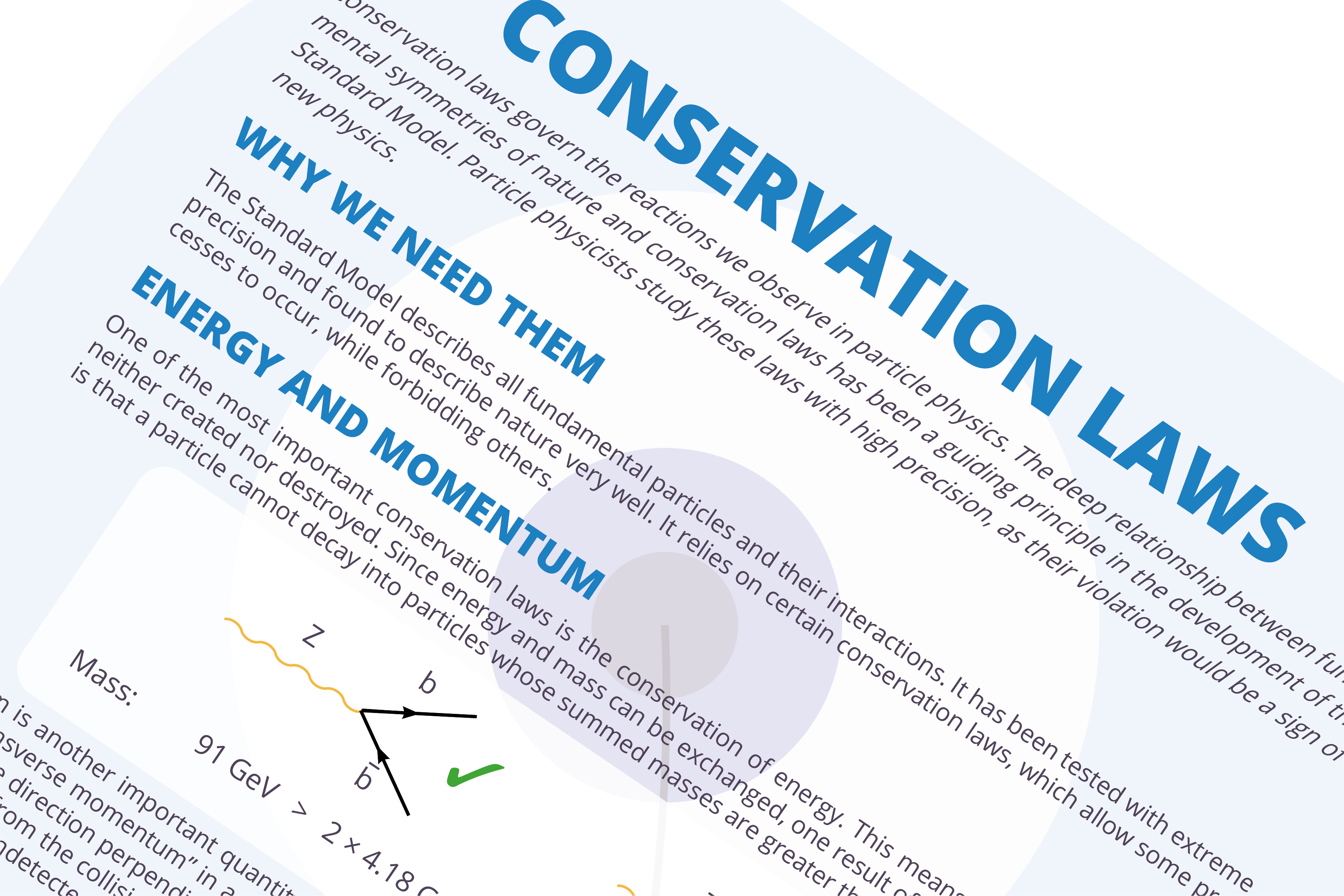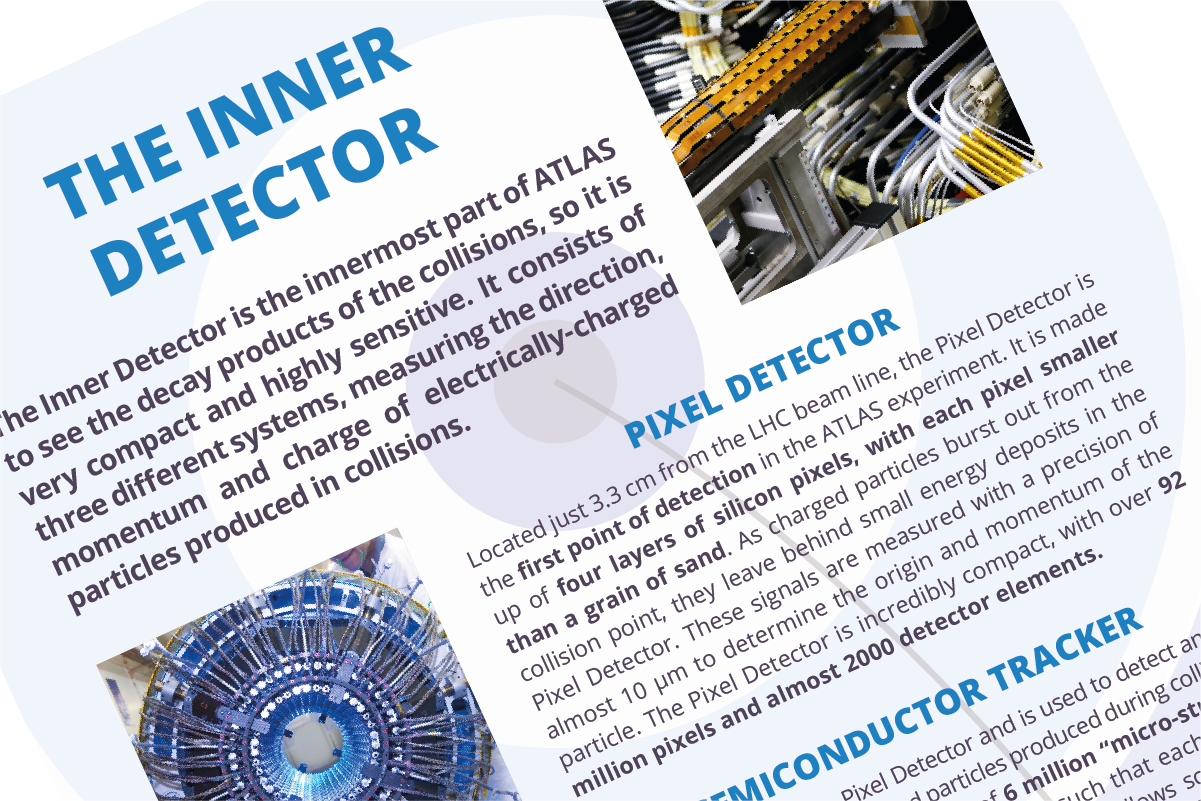Follow particle decays through a maze
Sheet Type
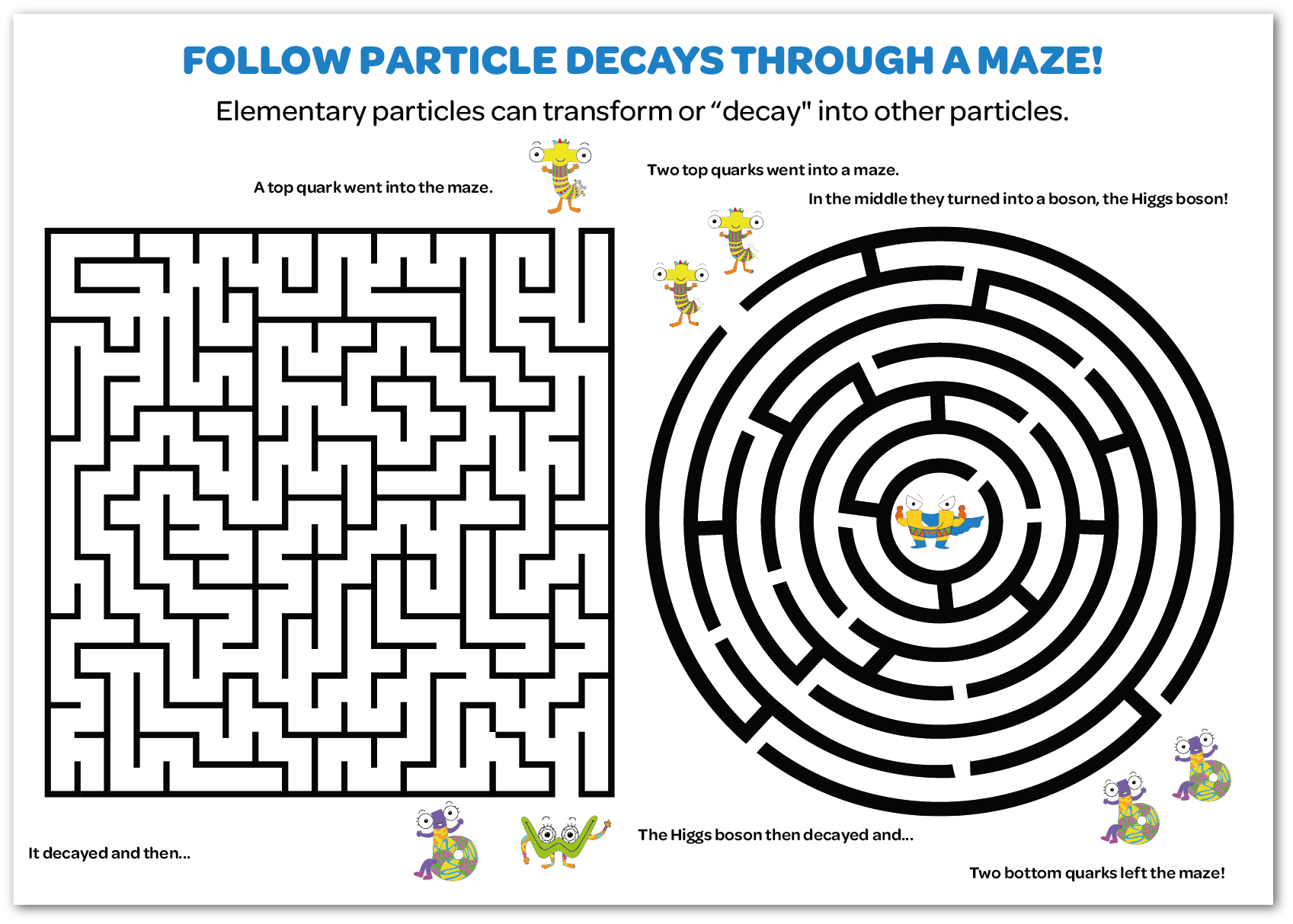
Follow particle decays through a maze

Follow particle decays through a maze
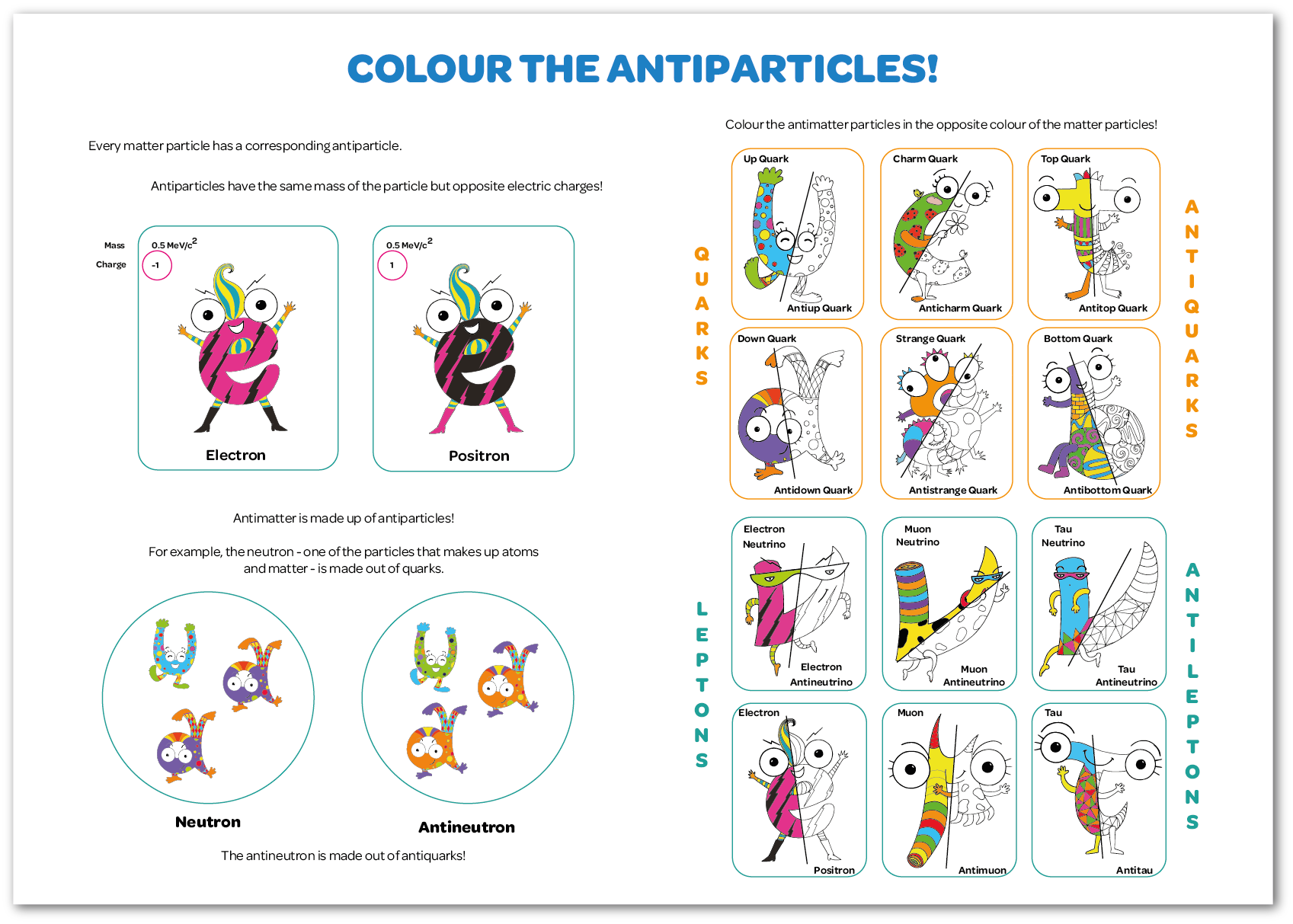
Particles vs. Antiparticles
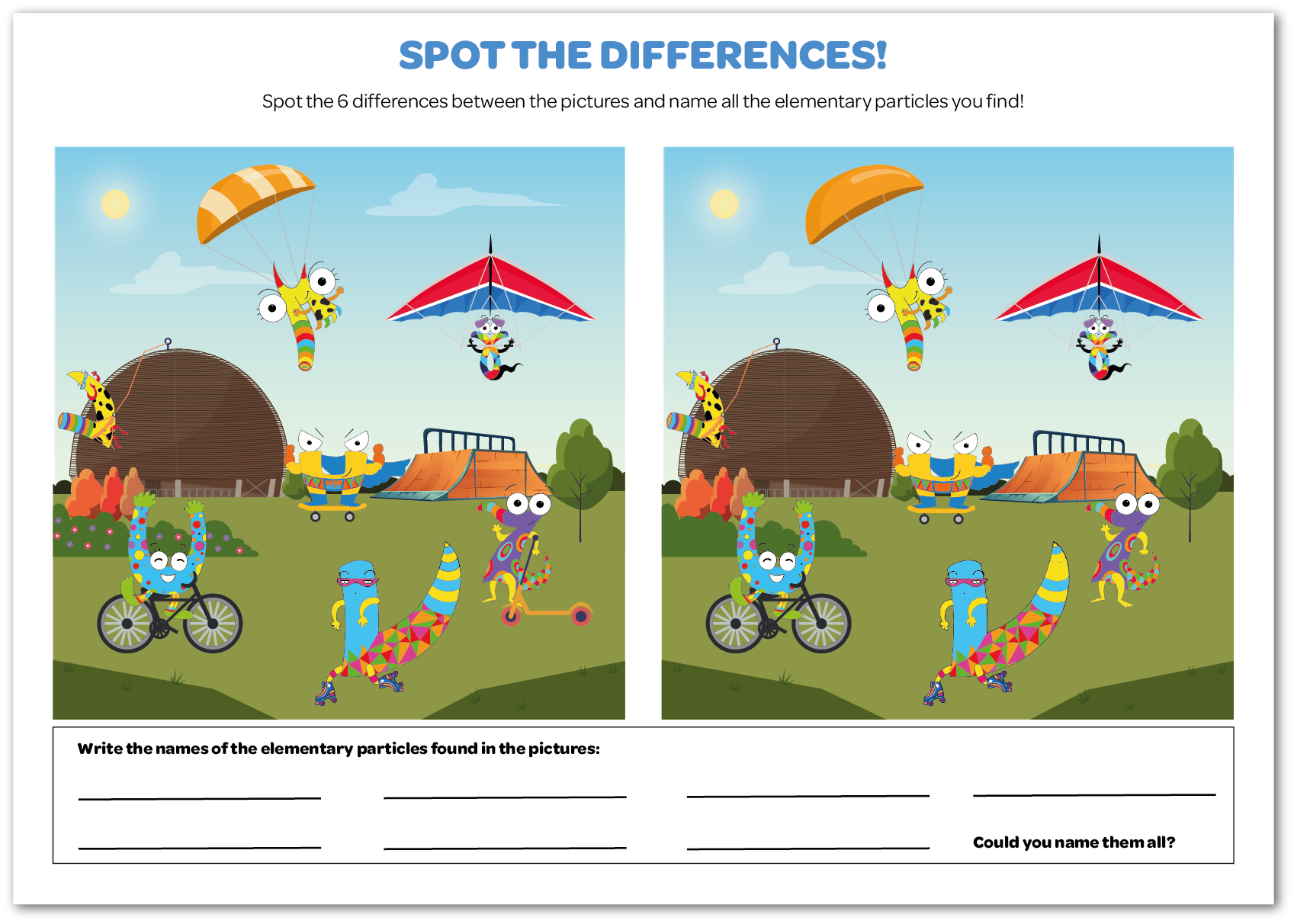
Spot the Differences
Come join us underground in the ATLAS cavern for the Open Virtual Visit.
This will be our first Open Virtual Visit. Join us!
